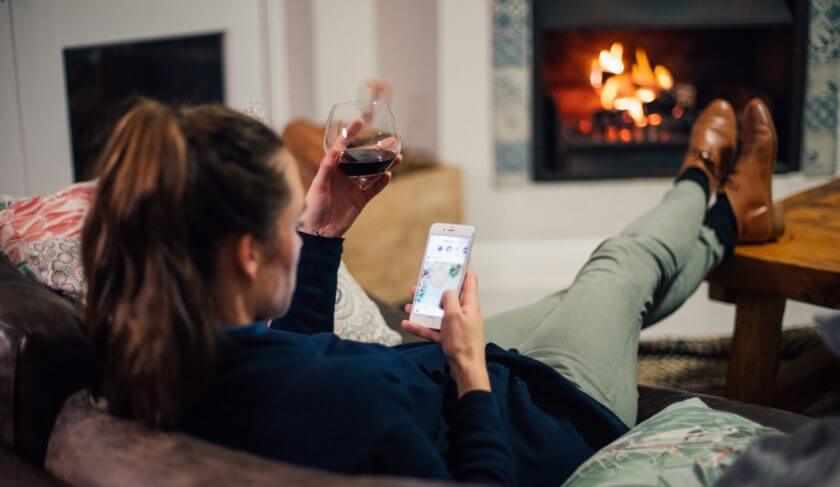
You’re settling into your couch after dinner, aimlessly watching Netflix, scrolling through Instagram. You’re served an ad that brings you to Amazon, and boom, after about 15 minutes, you suddenly have 6 items in your cart. This all-too-easy habit is a prime (no pun intended) example of boredom spending, and it can be seriously dangerous to your bank account. If you’re guilty of these late-night sprees, it’s time to take a step back and try these strategies for cutting back.
First, What Is Boredom Spending?
As Chris Courtney, the vice president of science for Happy Money put it, a boredom spender is just a human in the 21st century. When we have nothing else to do, and we don’t feel engaged, we turn to television and social media. “On both platforms, we are constantly bombarded with advertisements and humblebrag posts that make us want to spend mindlessly and keep up with the Joneses,” he continues. “It’s natural to want to fit in, and marketers have become experts at giving us all spending FOMO. Being a boredom spender is just impulsively succumbing to the pressures to spend mindlessly that flood our lives, especially our TVs and social media feeds.”
Boredom spending is also common because most of us are able to pay with credit cards (or other apps) quickly and easily, without even thinking about our purchase. “Boredom spending taps into our desire for instant gratification, leading us to make purchases that we can’t afford to pay down. We build up debt and wind up paying even more for each item because now we’re being charged interest,” Courtney says. “Suddenly, you have reduced purchasing power because you’re paying a premium for things you already bought in the past. It’s a vicious cycle that leads to downward spirals both financially and psychologically.”
Here’s a look at some of the most effective ways to combat boredom spending.
Find Other Sources of Entertainment
Thank you, Captain Obvious. But seriously — one of the reasons you’re probably making an impulse purchase is because you’re not feeling inspired. From a mental health perspective, you simply need to find other healthier sources of stimulation, says psychologist Dr. Yvonne Thomas, Ph.D. For example, she explains that exercising can be a helpful way to divert your urge to spend. “Through cardio, weights, yoga or Pilates, you can work off some of those boredom feelings,” she continues. “Furthermore, exercising can result in positive feelings — like an adrenaline high or a peaceful mood, which can naturally fill you up rather than turning to boredom spending.”
Another way to decrease boredom spending is to find a creative outlet that provides satisfaction. For example, she explains activities like cooking, baking, painting, writing, playing an instrument, singing, or dancing can give you a channel to express yourself innovatively. “Being involved in a creative activity can also give you an activity that makes it less likely you’ll feel unfulfilled,” she continues. “In addition, you may be proud of your creative endeavor and feel good about yourself and, as a result, be less likely to boredom spend.”
Learn What Types of Purchases Lead to Lasting Happiness for You
According to Happy Money data responses from two million people, Courtney says 60 percent of people are content with the purchase they make. However, that leaves 40 percent who experience regret. “We know that people are saddest when they spend money on fast food, food delivery services, and interest charges or late fees,” he says. “People tend to report being happy with more experiential purchases like concerts, movie tickets, or travel. Experiences make us who we are, and the stories they provide keep the good feelings going for years after the purchase was made. The trick is to find out what purchases are the most meaningful for you.”
So when you’re lounging in your bed, about to buy another product you probably don’t need, pause to think about how you’ll feel in an hour, tomorrow and next week. A smart audit is to look back on your purchases from the past couple of months and write down how you feel about those goods. “Use this knowledge the next time you’re wavering or ready to make an impulse buy,” he adds.
MORE ON HERMONEY:
- Could 2021 Be The Year You Start — And Stick To — A Budget?
- 8 Reasons You’re Unhappy at Work
- 5 Places To Tighten Your Budget If Your Spending Habits Have Changed
- Are You Falling Victim to Revenge Spending?
SUBSCRIBE: We’re changing our relationships with money, one woman at a time. Subscribe to HerMoney today.







